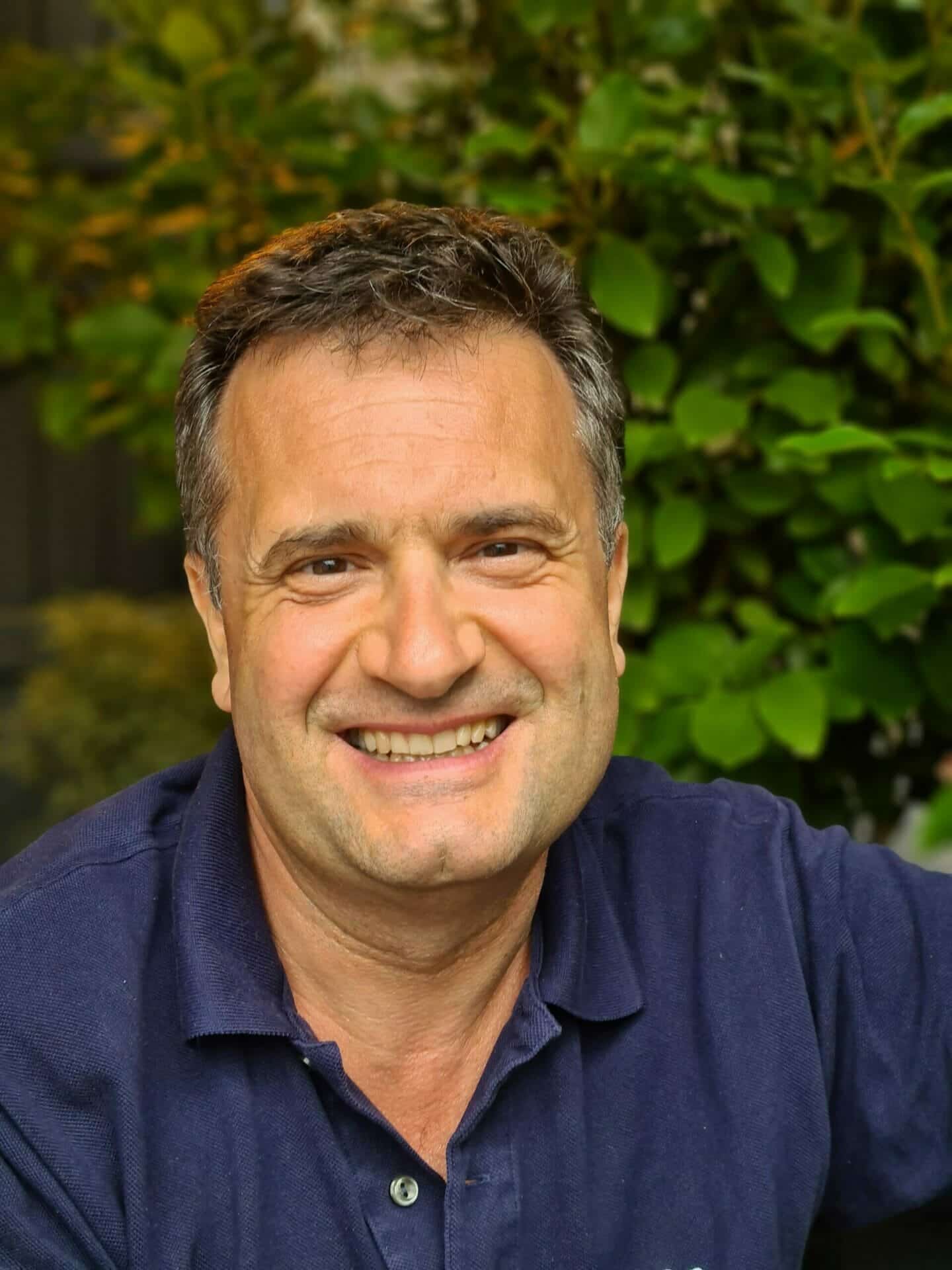8 to 10% of the world’s population is dyslexic, a disease that greatly impacts reading and writing in children and adults. Thanks to research carried out by professors from the University of Rennes (Albert Le Floch and Guy Ropars), the founder and president of Lili For Life, Frédéric Granotier, has developed a lamp capable of mitigating the effects of dyslexia. Accompanied by Bertrand Descours, CEO, he answers our questions about this revolutionary technology.
What is your background?
Frédéric Granotier : I trained in a business school before starting in auditing and consulting. I joined the entrepreneurial world as CFO, then CEO of Selftrade, an online broker. I then co-founded Poweo, a gas and electricity operator, then Lucibel, a company specializing in LED lighting. In 2020, I created Lili For Life. I am still president of Lucibel and I am also president of Rouen Normandy Invest, whose aim is to promote the establishment of businesses in Seine-Maritime.
Bertrand Descours: I just joined Lili. I have just finished 25 years of a rather salaried life. I was a manager within the Feu Vert group. I was responsible for managing the offer, purchasing, supply chain and marketing. Today, my objective is to support the development of Lili and its marketing.
Listen : Passionate about entrepreneurship? Go behind the scenes of the biggest startups with our podcast!
Everything you need to know about Lili For Life, the lamp that helps dyslexic people
Lily For Lifewhat is this ?


Frederick: Lili For Life is a company founded in September 2020, based on the discoveries of two researchers from the University of Rennes, Albert Le Floch and Guy Ropars, on the causes of dyslexia. They understood that this disease originated in the absence of a dominant eye. People with dyslexia have two dominant eyes, which causes each of their eyes to see text at the same millisecond. The information goes back to the brain concomitantly, which means that there is a superposition of images and therefore difficulty in reading.
This exceptional discovery led people to say that with strobe lights, we should be able to recreate a shift that would allow dyslexic people to be able to read much more easily. We have entered into an agreement with these researchers and the University of Rennes to be their exclusive partner for the design and global marketing of lamps. This is where Lili For Life was born. The goal is to help as many dyslexic people as possible and facilitate their access to speed reading and change their lives. Our slogan is: “ With Lili, I read and relive “.
Why were you interested in dyslexia?
Frederick: I became interested in dyslexia by chance, when meeting these researchers. In their laboratory, I saw a pile of letters from families who had come to test their lamps. They were poignant letters thanking these scientists and saying that their children were happy because they had managed to read like everyone else. When I saw these letters, it convinced me that this was an extraordinary discovery. That’s when I decided to put my experience at the service of this cause.
Bertrand: For my part, what pushed me to join the project was the quest for meaning. This mission is the result of a major scientific discovery. My work will help relieve suffering people who lack self-confidence. I am also happy to participate in an entrepreneurial adventure, after years of employment.
How does the Lili For Life lamp work?
Frederick: It is a small foldable and portable lamp, autonomous and battery-powered.
Bertrand: It was developed in a nomadic way so that the student, a child or an adult can take it wherever they want and use it independently. Thanks to a smartphone application, you can easily adjust the lamp and adapt it to your needs. In addition, we have set up a customer service number that can assist the user, if necessary.
The key stages in the development of Lili For Life

The creation of Lili For Life is also marked by a particular production method?
Frederick: As part of this social and societal approach, we wanted to ensure that the Lili For Life lamp could be assembled by people who need to work. We therefore called on a subcontractor whose particularity is to have women from the Versailles remand prison work on the assembly. It’s part of our mission to help others live happier, more fulfilled lives. This production method is one of the criteria that led us to choose this subcontractor.
Where are the development and marketing of Lili For Life today?
Bertrand: The lamp can already be purchased on our website. We are already referenced at Boulanger and at Atol which has obtained exclusivity on the production of glasses which make reading easier for dyslexics. Thus, customers will have the possibility of having a double offer with LexiLens and Lili For Life. We will also develop agreements with Fnac-Darty which will soon reference our lamp. Finally, we want to make our product available in company catalogs, to allow certain employers to purchase it for their employees.
Frederick: Since October, Lili For Life has enjoyed great success. It retails for €349 and is really easy to use!
Bertrand: Our team is also made up of a speech therapist who supports our clients in their experience. What we measured is that 30% of users have a “Wow!” effect. » from the first use. In total, 80% have a very positive feeling.
What’s next for you?
Frederick: We will market Lili For Life internationally. Our lamp was present at CES in Las Vegas and we won an innovation award, which already provides great visibility. We also intend to diversify the range of products that will be placed on the market. We have a beautiful roadmap which will lead to the sale of new tools to combat dyslexia at the end of the year.







